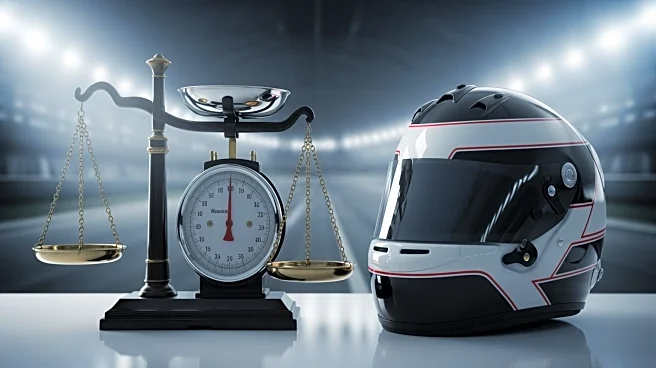What's Happening?
The FIA has issued a response to a lawsuit filed by former Formula 1 driver Felipe Massa, who is challenging the results of the 2008 championship. Massa's legal action, initiated in London, seeks recognition as the rightful champion of that season and
demands compensation of approximately £64 million (about $84.5 million). The lawsuit is based on an alleged breach of the FIA's rulebook concerning events at the Formula One Singapore Grand Prix on September 28, 2008. The FIA has described Massa's claim as overly ambitious and torturous, noting the complexity of the case given its international dimensions.
Why It's Important?
This lawsuit could have significant implications for the integrity and governance of international sporting events, particularly in Formula 1. If Massa's claim is successful, it may set a precedent for challenging past race results and championship standings, potentially leading to increased scrutiny and legal challenges in the sport. The case also highlights the ongoing debate over the fairness and transparency of race regulations and their enforcement. Stakeholders in the sport, including teams, drivers, and sponsors, may face increased legal and financial risks if similar claims arise in the future.
What's Next?
The legal proceedings in London will continue as the court examines the merits of Massa's claim. The FIA and other involved parties will likely present their arguments and evidence to counter the lawsuit. Depending on the outcome, there could be appeals or further legal actions, potentially involving other drivers or teams affected by the 2008 championship results. The case may also prompt discussions within the FIA about revising or clarifying race regulations to prevent similar disputes.
Beyond the Headlines
The lawsuit raises questions about the ethical and legal responsibilities of sporting organizations in maintaining fair competition. It also underscores the challenges of addressing historical grievances in sports, where outcomes are often influenced by complex factors beyond the control of individual participants. The case may lead to broader discussions about the role of legal systems in resolving sports-related disputes and the balance between sporting tradition and legal accountability.















